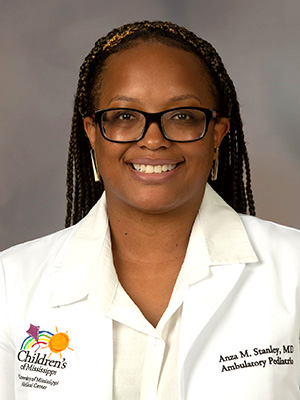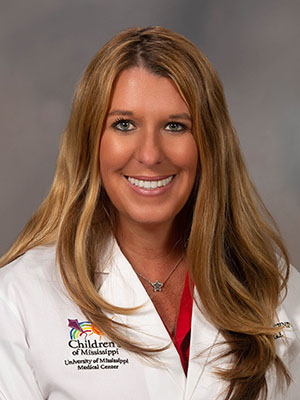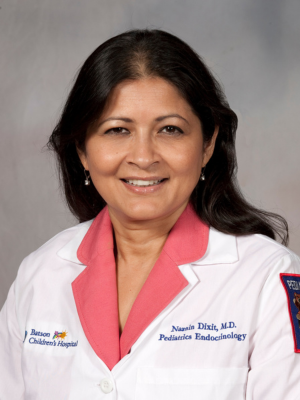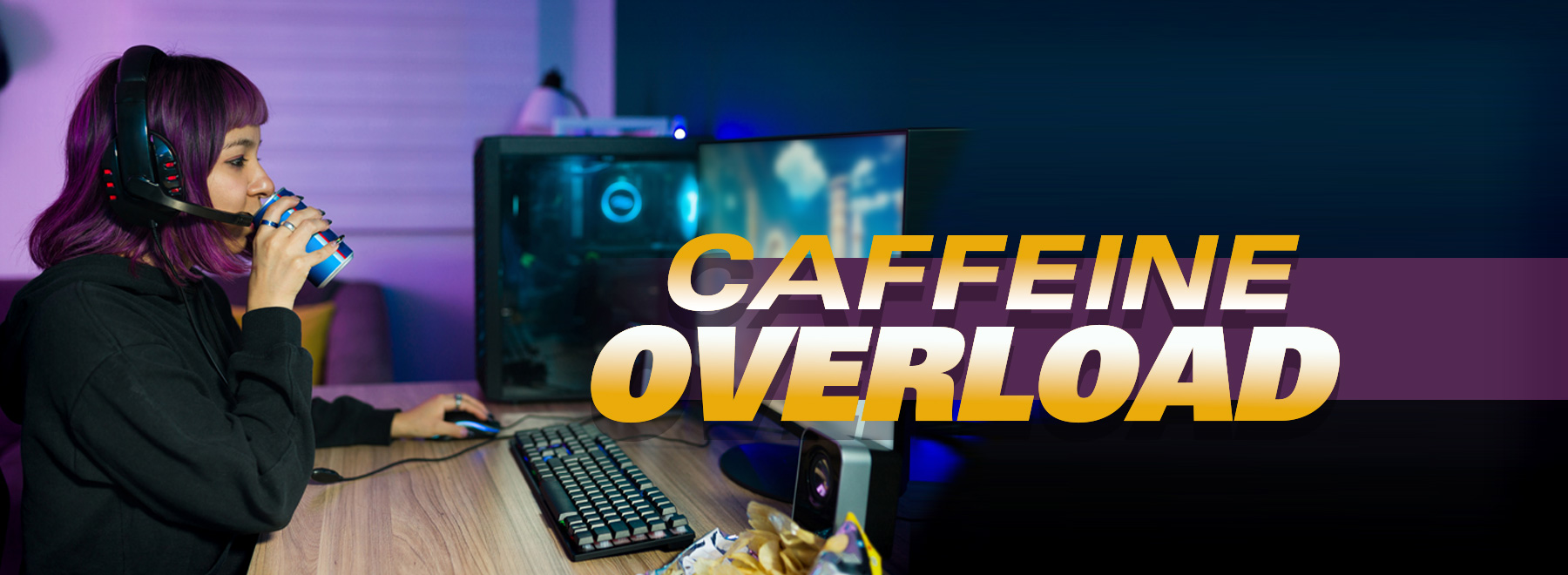Curb your teen’s energy drink enthusiasm
Despite the American Academy of Pediatrics’ recommendation that teens say no to energy drinks, the number of adolescents consuming the overly-caffeinated beverages is higher than ever, and the market is more crowded than ever.
In fact, the energy drink market, valued at $86 billion in 2021, is projected to more than double by the end of the decade, to $177 billion in sales.
According to the American Heart Association, 30 percent of teens between ages 12 and 17 regularly drink energy drinks. Canned beverages and loaded teas are two of the more popular products.

Because of the side effects, teens should just say no to the trendy beverages, said Dr. Anza Stanley, associate professor of pediatrics and medical director of Children’s of Mississippi - Batson Kids Clinic.
Those side effects, which Stanley has seen in children after drinking the beverages, include insomnia, anxiety, jitteriness, palpitations and other heart problems, dehydration and gastrointestinal upset.
“Many of these drinks are popular because of the presumed benefits that caffeine affords, along with the pretty cool colors that you see with the loaded teas,” said Stanley. “However, we know of the side effects they pose. Loaded teas may contain other ‘vitamins,’ and they differ among the different brands.
“That is how they market these items as containing ‘vitamins’ so people think they’re healthy, which is not the case. They may advertise that they are zero calories or zero sugars or full of C or B vitamins or amino acids. Each brand may have its own ingredients, but the common thing is the caffeine source.”
Though the FDA recommends adults not consume more than 400 milligrams of daily caffeine, there is no proven safe caffeine dosage for children, according to The American Academy of Child and Adolescent Psychiatry. Pediatricians therefore recommend no caffeine for children younger than 12 and that those 12 to 18 consume no more than 100 milligrams a day.
There’s eye-opening data to back up the recommendations. The number of emergency room visits involving energy drinks doubled from 2007 to 2011, and at least 34 deaths have been linked to the beverages, according to the FDA.
The loaded teas, sold made-to-order in shops that often include the last name “Nutrition,” are cropping up in communities, shopping strips and malls everywhere. In addition to being marketed as sugar free and low calorie, they include ingredients such as ginseng and guarana and feature flavors with names like Jolly Rancher and little mermaid.
The canned drinks are sold everywhere from grocery stores to school vending machines. The popular brand Alani Nu, which boasts 12 flavors including cosmic stardust, trippy hippie, and berry pop, is sold in 12-ounce sleek designer cans and includes 200 milligrams of caffeine, no sugar and a “dash of vitamin B6 and B12.” Despite its youthful marketing, its website states it’s not recommended for children.

Still, both drinks are especially popular among teenage girls because they claim to help with weight loss, curb appetite, and increase energy, mental alertness and physical performance, said Shanda Sandridge, a nurse practitioner in pediatric gastroenterology at Children's Healthcare of Mississippi.
“They also taste really good, too,” said Sandridge. “The drinks that are sold at convenience stores typically have a list of ingredients and are often filled with added sugar. Drinks bought at nutrition stores typically do not have a list of ingredients, which makes it difficult to know exactly what is in them.”
Kennedy McKee, 18, of Jackson, has been drinking both the loaded teas and the canned drinks for three years, either to help her get going in the morning before school or before working out in the afternoons.
“I drink them because they give me a boost of energy with an amazing flavor,” said the May high school graduate. “I drink them at least once a week now. I used to drink them every day.”
Now a college freshman, McKee said she cut back when she noticed the side effects and read the labels. Now, when she buys a loaded tea, she asks for half the caffeine.
“When my heart started excessively beating, I chilled out on having the energy drinks as often as I did,” she said. “I’m concerned about what effect this might have on my heart one day. They make me feel a little bit more on edge and anxious if I’m already having an anxious day.”

To put it in perspective, an 8-ounce serving of an energy drink can have 2 to 5 times more caffeine than a cup of tea, coffee or soda, said Dr. Naznin Dixit, professor and chief of pediatric endocrinology and diabetes, and director of Pediatric Endocrinology Clinical Services.
“We see a lot of ADHD diagnoses, sleep problems, and arrhythmias in our pediatric population, and I wonder how many are as a result of consumption of these energy drinks,” said Dixit, who cited hypertension, obesity and seizures as additional side effects. “If you have underlying, undetected heart disease, they can be fatal.”
Dixit said the drinks are dangerous enough that pediatricians should rethink how they manage patients. “We aren’t asking the right questions,” she said. “It’s important that we screen for consumption of energy drinks during wellness visits or when they present with unexplained symptoms. These drinks are not regulated, so they can contain multiple stimulants without telling you exactly what is in it. These kids are so naive and gullible that just because it’s labeled as energy, they think it will help them.”
Teens who abuse the drinks may also be more likely to be involved in other risky behaviors, such as drug and alcohol use, and unprotected sex, so it’s important that parents talk to them about the dangers.
There is no magic formula for increasing energy, said Stanley and Sandridge. Eating a balanced diet that consists of carbohydrates, fats and protein, along with regular physical activity, will promote energy and weight loss. Sufficient sleep is also critical. The American Academy of Sleep Medicine recommends eight to 10 hours of sleep per day for teens 13 to 18.
Sandridge also recommends parents offer alternatives, such as fruit-infused waters and homemade smoothies. Of course when they’re not home, it’s impossible to control what they drink. So it’s important to instill in teens not to buy the uber-caffeinated drinks just because they can.
Said Dixit: “There’s no place for these energy drinks in schools or anywhere near kids.”
The above article appears in CONSULT, UMMC’s monthly e-newsletter sharing news about cutting-edge clinical and health science education advances and innovative biomedical research at the Medical Center and giving you tips and suggestions on how you and the people you love can live a healthier life. Click here and enter your email address to receive CONSULT free of charge. You may cancel at any time.



